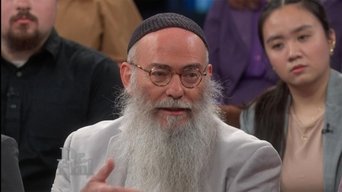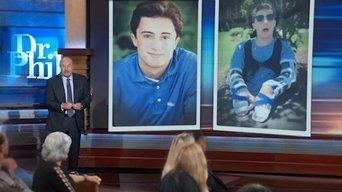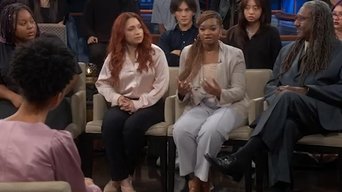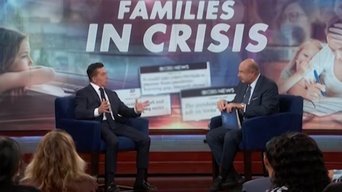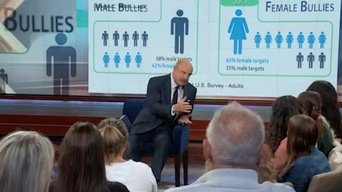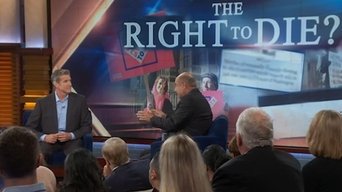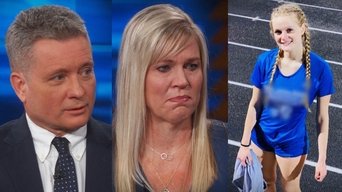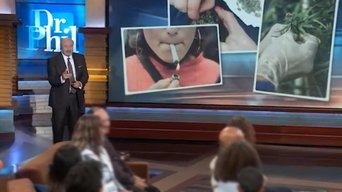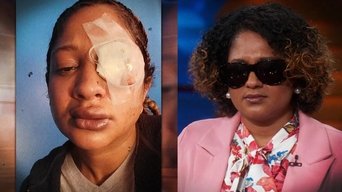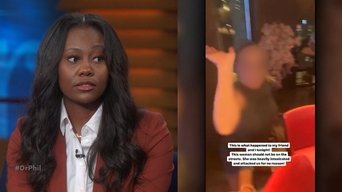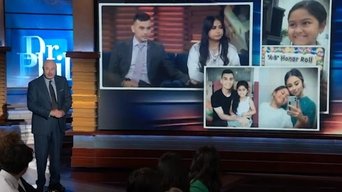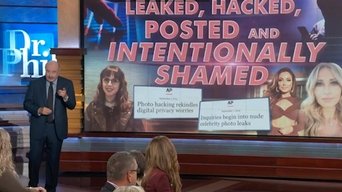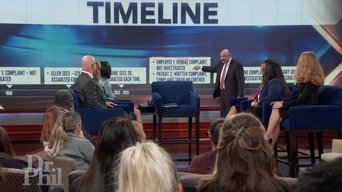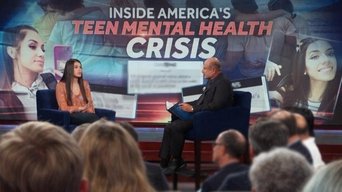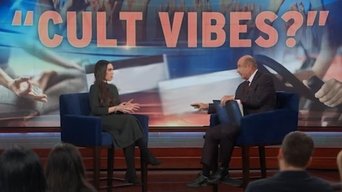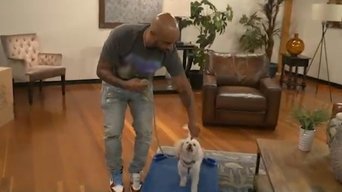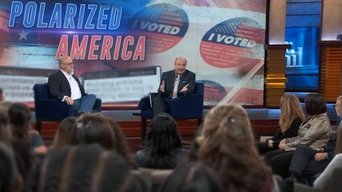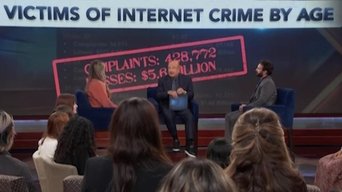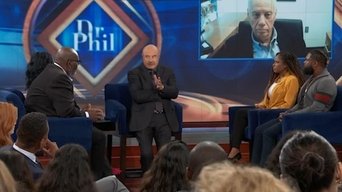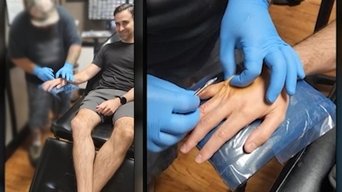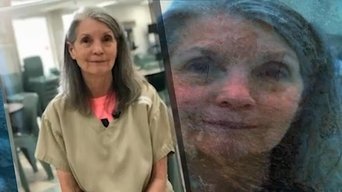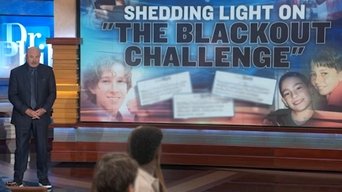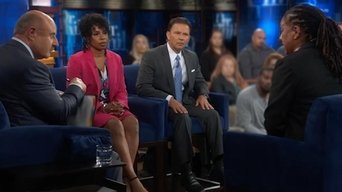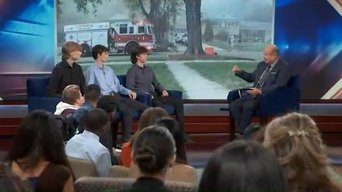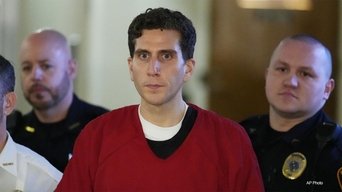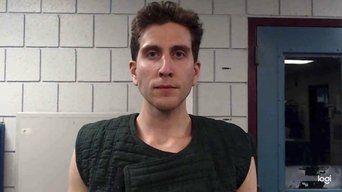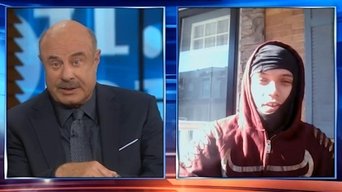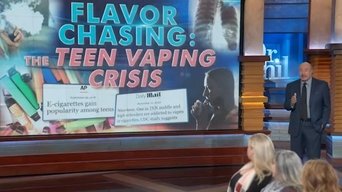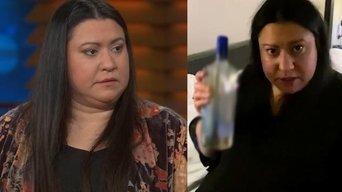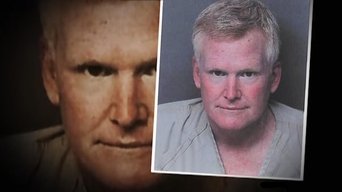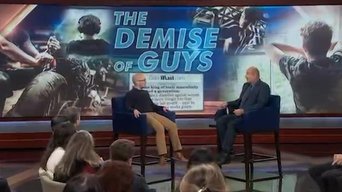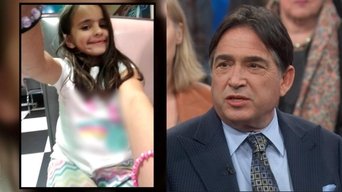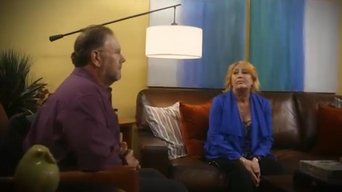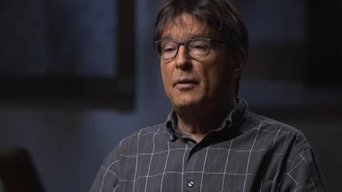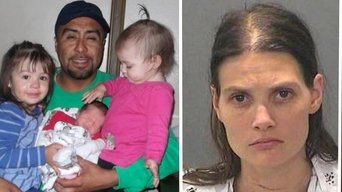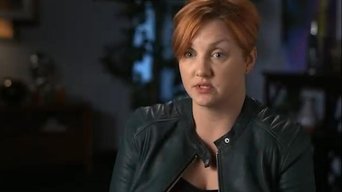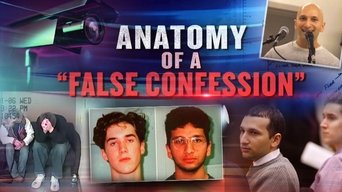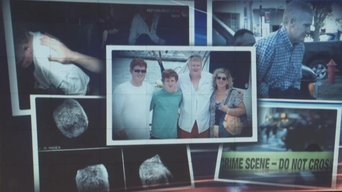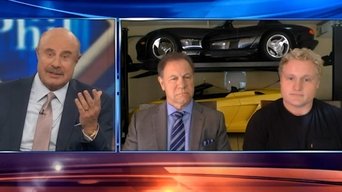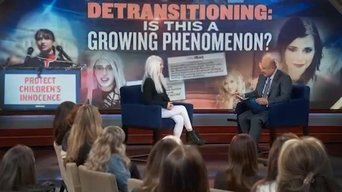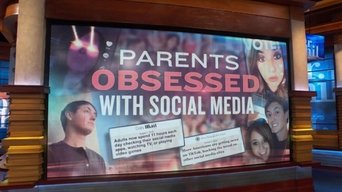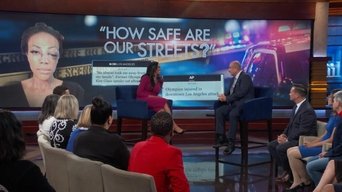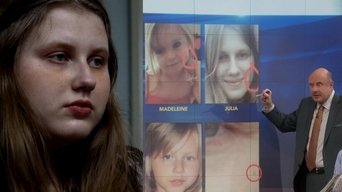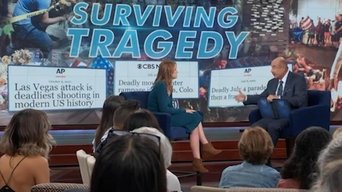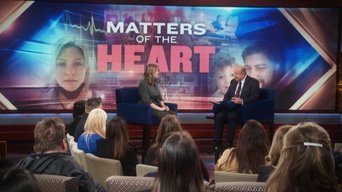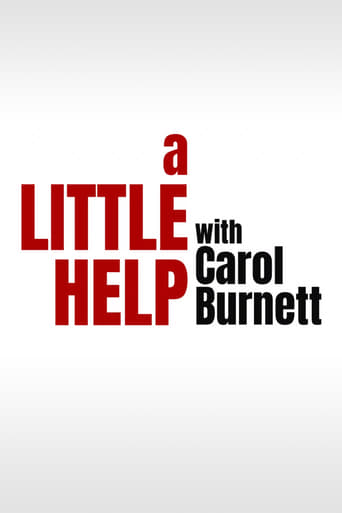Dr. Phil (2002)
Using the power of television, Dr. Phil McGraw presents compelling stories about real people with a variety of emotional and behavioral problems, stripping away the shame and embarrassment that too often keep people from seeking help. Its a show that is suppose to help people with their problems and to find a solution on live TV .
Seasons & Episode

Jennifer says she had no idea her 11-year-old daughter was using he/him/they pronouns and a different name while at school. She claims this went on for months before it was brought to her attention. Jennifer says she believes she should have been involved in the conversation from day one, and questions whether school faculty members may have been encouraging her daughter’s transition. Dr. Phil invites experts Eli Erlick, Dr. Yalda Safai, and Asra Nomani to dive into the complex debate over gender identity and transgender inclusivity in schools today.

Dr. Phil takes you inside a fraternity hazing trial that made national headlines. Two former Bowling Green State University fraternity brothers have been sentenced for their part in the alcohol poisoning death of 20-year-old student Stone Foltz. Since this tragedy, Foltz has become one of the most prominent faces of this national epidemic. He was in his final days of pledging Pi Kappa Alpha when prosecutors say he and other underage pledges were encouraged to drink an entire bottle of liquor in order to be initiated into the brotherhood. Meet Foltz’s family and hear about the sentencing. Do they believe the punishment fits the crime? Plus, hear chilling testimony from Foltz’s fellow pledges and his girlfriend that give insight into his deadly initiation night.

Fentanyl, a synthetic opioid, is plaguing the country and killing some of the most vulnerable people: children and young adults. Not only are counterfeit prescription pills routinely laced with Fentanyl, but so are street drugs like cocaine and marijuana, which is killing people in masses. Feliz shares the tragic story of losing her sister, Karina, to a mass fentanyl poisoning that killed her and four other adults. Also, John, a father, says he watched both his sons overdose in his home after taking what they thought was Oxycodone but instead was a counterfeit pill laced with fentanyl. One of his sons survived and shares what happened on that fatal night.
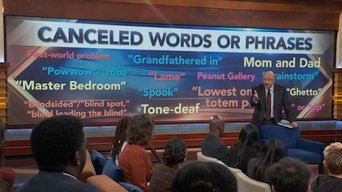
The “self-censorship” debate continues. Meet Alejandro, a student who claims administrators at his community college violated his free speech rights. He says when he and members of the club Young Americans for Freedom posted flyers on campus, they were censored. Then, which public figures are fighting back against cancel culture? And, Dr. Phil takes a closer look at a list of terms that are now allegedly off limits. What words are on that list? Tune in to find out.
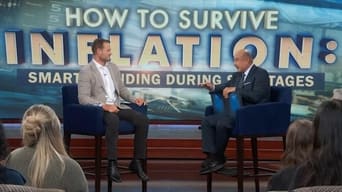
There are shortages of everything from flights and airplane pilots to teachers, baby formula, certain foods, workers, and more. Dr. Phil discusses how shortages are affecting us and how we can overcome these hard times. The Points Guy, Brian Kelly, gives tips on how to travel, get cash back, and go on a dream vacation -- or have extra money to pay your bills -- by using points. Economist Dr. Victor Claar explains the shortages our country is facing and how we can make things a little easier at home.

Dr. Phil continues his series on how to survive inflation. Today, financial experts share money-saving and money-making tips to help you learn how to take control of your finances during inflation. Plus, find out the best ways to use money to make money, savings hacks, freebie secrets, and get advice on how to set up the next generation for financial success.
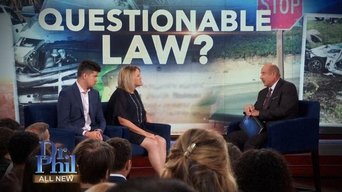
Most laws are adopted to keep communities healthy and safe and to reflect and memorialize good public policy. But, even the most well-intentioned laws can backfire and lead to absurd or unjust outcomes. Dr. Phil’s guests share what they consider outrageous miscarriages of justice involving a car accident, a rape, and a murder that ruined lives. Plus, hear from those trying to change the law.
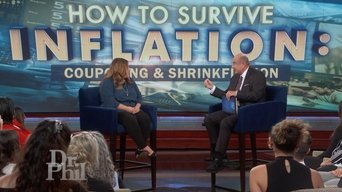
Everyone is talking about inflation and wanting ways to stretch their dollar. Today, the coupon queen tells viewers exactly how to get necessities for nearly nothing. Then, a consumer advocate explains shrinkflation -- how to spot it and what to do about it. Plus, a food prepper shares her tips to prepare for shortages and save big on food. And, an economist reassures people that inflation is temporary and shares tips on how to hunker down without sacrificing your quality of life.

The new series Dahmer - Monster: The Jeffrey Dahmer Story may have landed the number one spot on Netflix, but it wasn’t popular with everyone. Angry family members of Dahmer’s victims say the controversial drama re-traumatized them and romanticized the notorious serial killer. You’ve seen Hollywood’s version. Today, Dr. Phil is telling the real story and meeting the real people who say they knew the real monster that was Jeffrey Dahmer. In an exclusive interview, hear from the sister of one victim who says the series glorified the man she calls “Satan,” as well as two men who say they were tortured and terrorized by Dahmer and survived.
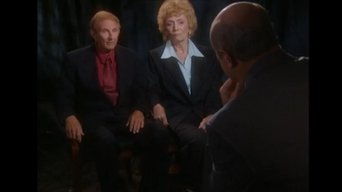
Victims and survivors of Jeffrey Dahmer say they want people to see him for who he really was -- not the glamorized TV version. See a never-before-aired interview with Dahmer’s father and stepmother that sheds light on the monster behind the man. They provide chilling details about his bizarre childhood behaviors. Plus, the Netflix series Dahmer - Monster: The Jeffrey Dahmer Story pushed a decades-old story into today’s spotlight, some say giving it a 2022 “pop culture moment.” After the series debuted, Dahmer’s infamous glasses went up for sale for $150,000, and people dressed up as the notorious serial killer for Halloween. Has our culture’s obsession with true crime desensitized us?

What creates a monster? As the popular new Netflix series Dahmer - Monster: The Jeffrey Dahmer Story pushes the heinous crimes of the notorious serial killer back into the spotlight, what can we learn about what may have made him the evil he was? Do chilling home videos of Jeffrey Dahmer as a little boy show an innocent child before he became evil? Or, were the signs already there? His father reveals the red flags he says he missed.

In this two-part episode, Dr. Phil discusses the handling -- or mishandling -- of the COVID-19 pandemic with top experts from the CDC, medicine, education, and legislation. Should schools have been shut down and remain closed? Was it about politics and power or the safety of children? Dr. Dimitri Christakis, Director of the Center for Child Health, Behavior and Development at Seattle Children's Research Institute, shares shocking results of learning loss and the impact of school closures and distance learning. Plus, what early assumptions were made during the pandemic that may have been incorrect? Former CDC director Robert Redfield explains what he believes were mistakes early on during the COVID-19 pandemic. And, is the pandemic over? Dr. Phil and the experts discuss what we can expect now.

Dr. Phil and his panel of experts, including Dr. Dimitri Christakis, Director of the Center for Child Health, Behavior and Development at Seattle Children's Research Institute, and Former CDC director Robert Redfield, continue their discussion about whether the COVID-19 pandemic was mishandled. How do we close the gap for elementary school children who have 5.53 million years of life hanging in the balance because of disruption of learning? Are we doing enough to fix the damage of the pandemic for children? Do schools need to open year-round now to make up for learning losses? Can we recover – and how? The experts share what each community needs to do and what questions parents need to ask their school district right now.
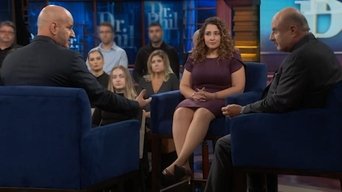
Thousands of asylum seekers from the Mexican border arrived in Washington, D.C. and New York City on buses sent by the governors of Texas and Arizona. The mayors of these cities asked for federal assistance because they believe this is a humanitarian crisis. Should the United States make it harder for people to cross borders? Dr. Phil debates that with the National Border Patrol Council President Brandon Judd and immigration attorney Saman Movassaghi Gonzalez.

Laura says she has been lying about her sobriety and hiding her drinking for weeks. Laura claims she wants to stop drinking alcohol but says that every time she tries to get sober, the alcohol wins. Eric shares his story of the time he chose to drive drunk after leaving a bar and killed two 20-year-old girls, Lisa and Meagan, as they were driving home from a babysitting gig. Hear Eric’s message to Laura about her decision to get behind the wheel drunk. And, Meagan’s mother, Renee, shares how that fatal day changed her life forever. Plus, Alex Otte, from Mothers Against Drunk Driving (MADD), shares what the organization has been doing to combat drunk driving. Will Laura decide to change her life?

Rachel fears that her friend Simone is being scammed by someone online pretending to be singer Omarion, and Simone wants the truth; online romance scams; Dr. Phil and Robin share their experience with their identities being stolen online.

Rapper/songwriter Brooklyn Queen says four years ago, a complete stranger began contacting her and trying to connect with her. Why? She says the woman was claiming to be her birth mother and was insisting on reconnecting with her. However, Brooklyn Queen says there is absolutely no way this can be true because her mother, Kimberly, is her biological mother, and she was not adopted. Brooklyn's parents, Kimberly and Duke, say they have no idea why this woman believes their daughter is hers. Kimberly and Brooklyn Queen asked to take a DNA test in hopes that it would finally convince this woman that Kimberly is in fact Brooklyn Queen’s mother. What do the results reveal?

Three families with one thing in common: they say their daughters, collegiate student-athletes, were suffering in silence before they died by suicide. They say their daughters faced immense pressure to balance it all, something that many student-athletes face, but often don’t express due to the stigma around mental health. All three families are pushing for change and more conversations about mental health on campus. Then, Thomas, a current student-athlete, shares his story of struggling with mental health as a D1 football player. He attempted to take his life but now shares his story as a message to others who may also be suffering alone.

Disbarred personal injury attorney Alex Murdaugh, from one of the most prominent families in South Carolina, was recently convicted of the 2021 murders of his wife, Maggie, and youngest son, Paul. Hear from one of the jurors and what he says sealed Murdaugh’s fate. Plus, former Prosecutor Loni Coombs and Court TV reporter Vinnie Politan discuss Murdaugh’s alibi, how the timeline of the night of the murders was crucial, and the numerous lies Murdaugh told.

In June 2021, Alex Murdaugh, a once prominent personal injury attorney from South Carolina, claimed he found his wife and youngest son shot dead on their hunting lodge property. About a year later, Murdaugh was charged for their murders, and recently, a jury convicted him, and he was sentenced to two consecutive life sentences. Dr. Phil and his panel of experts, former Prosecutor Loni Coombs, Court TV reporter Vinnie Politan, and body language experts Scott Rouse and Greg Hartley, analyze Murdaugh’s behavior during his double murder trial. Hear their breakdown of Murdaugh’s body language, including three key behaviors that they say were glaring red flags.

The recent movement, originating in the activism of transgender advocates, to replace the word "woman" with gender-neutral terms causes a growing concern among women born biologically female that the language changes are allowing women to be erased.

Angel-Rose discusses how every night she is attacked by spiritual entities similar to ghosts from the astral plane.

Activists, writers, educators and descendants discuss giving financial reparations to African Americans.

Dr. Phil gives viewers a sneak peek at what happens when the show ends: after the taping, the often-lively exchanges continue, and the cameras keep rolling; Chris' neighbors saved his life by performing CPR while he was having a heart attack.

Whether transgender students should be allowed to use bathrooms corresponding with their identities; how old children should be when learning about gender identity in school; whether parents should make decisions on what their kids learn and when.

The search for a missing teen who may be the victim of sex trafficking; a girl says she was lured into sex trafficking by a man she met online; former athletes and assault survivors Jon Vaughn and Trinea Gonczar partner to fight sexual abuse.

How product and service influencers persuade people to spend money; perspectives from an influencer, a marketing specialist and a spending coach; Brendan Gahan, Chief Innovation Officer at Mekanism.

Discussing the epidemic of childhood obesity; a 13-year-old shares her story of being bullied at her school for being overweight; one of the first teens to undergo weight-loss surgery; President of the Obesity Medicine Association Dr. Angela Fitch.

Teri says she was attacked by former friend Valina's dog, while Valina says that Teri exaggerated her injuries so much that her dog had to be euthanized; a woman tells of being attacked by a client's two dogs.

A woman says she was attacked by two dogs she was dog-sitting, and nearly lost her life; trainer and behaviorist Jas Leverette.

James Addie, a husband and father, lived a double life, leading to the murder of his fiancée 48 hours before their wedding day; his two families meet to pick up the broken pieces of their lives.

For two years, Terri has sent thousands of dollars to her millionaire boyfriend, Ricardo, whom she plans to marry but has never met in person.

Terri has been waiting two years for her millionaire boyfriend, Ricardo, whom she has never met in person, to return home from Canada with their Bitcoin investment; updates on some former Dr. Phil guests who were scammed.

Individuals who microdose psychedelics to achieve relaxation join Dr Phil, experts and sceptics to discuss its benefits and dangers.

Anti-immigrant sentiment and anti-Latino hate crimes; a couple say a woman terrorized them for a year; experts discuss rhetoric, misinformation, hostile speech and disrespect; Jason Tatenhove (book "The Perils of Extremism").

T.D. Jakes says disruptive thinking has led to some of the world's most innovative and necessary movements, and every period of chaos brings an opportunity to disrupt by providing an unexpected alliance or solution.

Some say critical race theory (CRT) admonishes all white people for being oppressors while classifying all Black people as hopelessly oppressed victims, but others say it must be taught to children because future generations could be hurt without it.

As a child, Alyssa wanted to get rid of her mother's strict boyfriend, John, so she told a lie, accusing him of sexually abusing her. Out of guilt, she retracts her confession, giving John a chance of a retrial after spending 26 years in prison.

Dr. Phil and his wife Robin answer questions and address rumours from their fans, as well as questions and tributes from some of their celebrity friends.

Artificial intelligence has the potential to improve people's daily lives, but it also raises ethical and societal concerns about its impact on employment, privacy and the future of humanity; Dr. Phil gets a special delivery from Serve Robotics.

Doreen's son, John Giuca, and Yvette's brother, Billie Allen, have spent half their lives in prison for crimes they say they did not commit, and both women say they will stop at nothing to get their loved ones out of prison.

Richard Glossip was convicted of first-degree murder for the beating death of his boss, based largely on the testimony of a man who said Glossip hired him to carry out the murder.

Andrew Tate is known for his misogynistic social media posts and videos; discusses whether parents should worry about Tate's influence on their sons; a group of teenage boys surprise their mothers when they share what they think about Tate.

Dr. Phil follows up with some of his most talked-about guests to find out what happened when they left his stage and returned home.

Dr Phil continues to provide thrilling updates on the past guests that viewers enquire about the most.

Innocent people, many of them miners, are often convicted after providing police with false confessions; what parents need to know to prevent it from happening to their children; Brendan Dassey, profiled in Netflix's "Making a Murderer."

Dr Phil shares how more than 23,000 young people age out of the US foster care system every year; two women say they faced challenges in the foster care system and ageing out of it; one gets the surprise of a lifetime.

A federal jury finds a pair of Black men not guilty of killing a white police officer, but they are sentenced to life in prison anyway; their attorney explains why; the officer's daughter comes face to face with the convicted men's family members.

A woman tells how she became addicted to Xanax and Oxycodone and later learned the pills were laced with deadly synthetic opioid fentanyl; a former drug dealer gives his perspective on the dangers of buying drugs; families share tragic stories.
Watch Trailer







